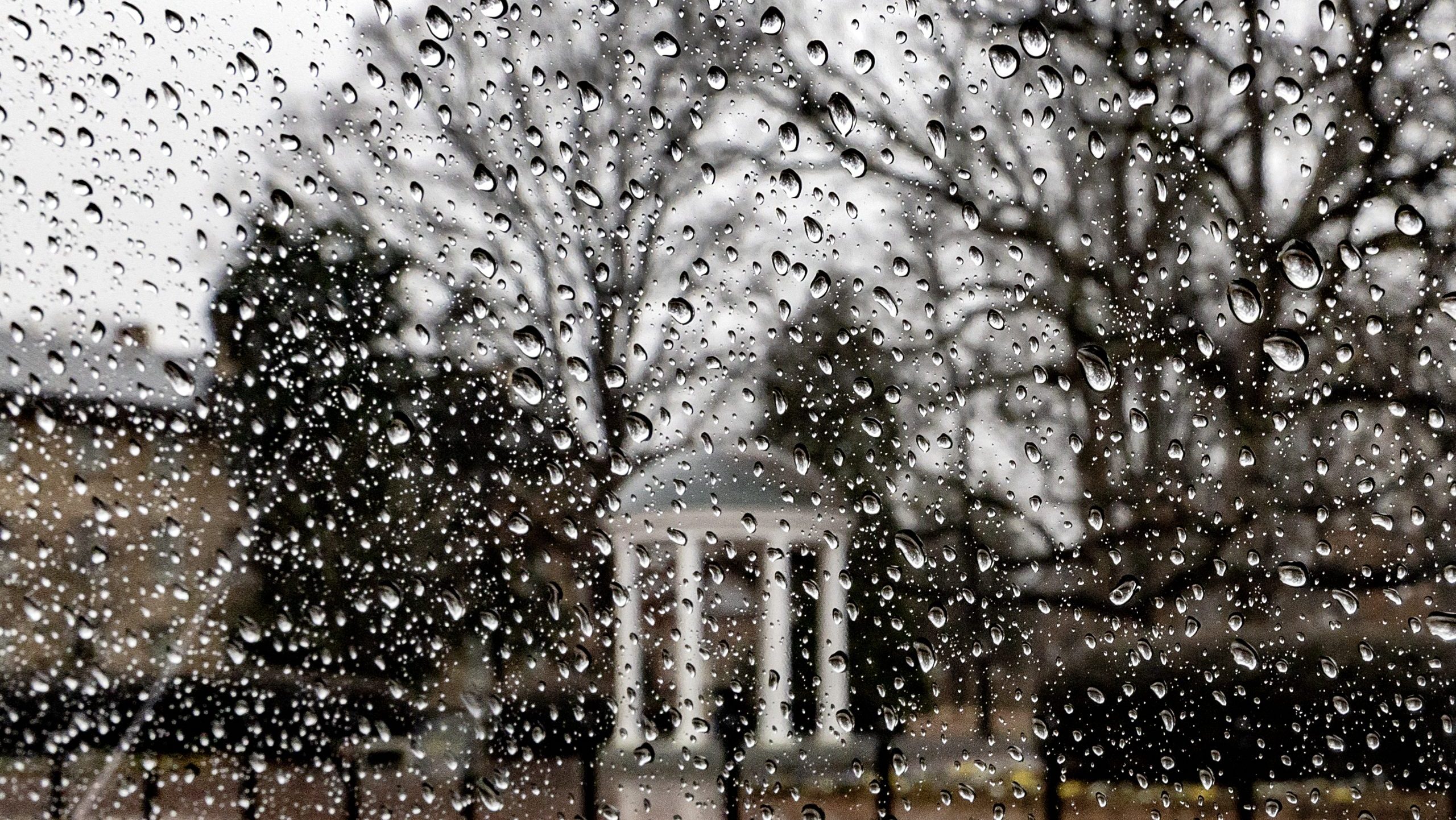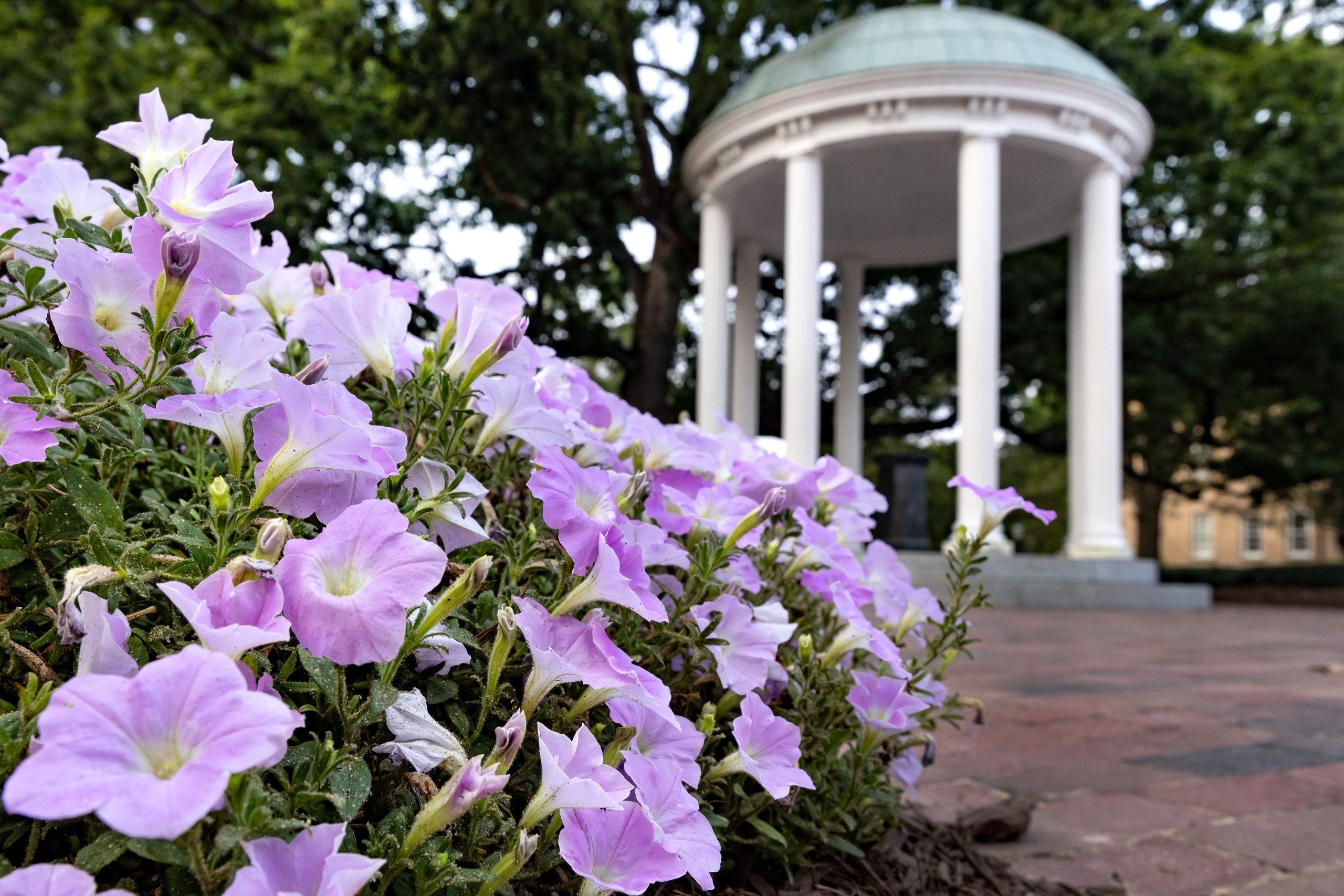UNC-Chapel Hill experts available to discuss hurricane season
University of North Carolina at Chapel Hill experts are available to provide insight on storm surge and flooding, emergency management during natural disasters, water quality, beach erosion and other storm-related issues for the media.
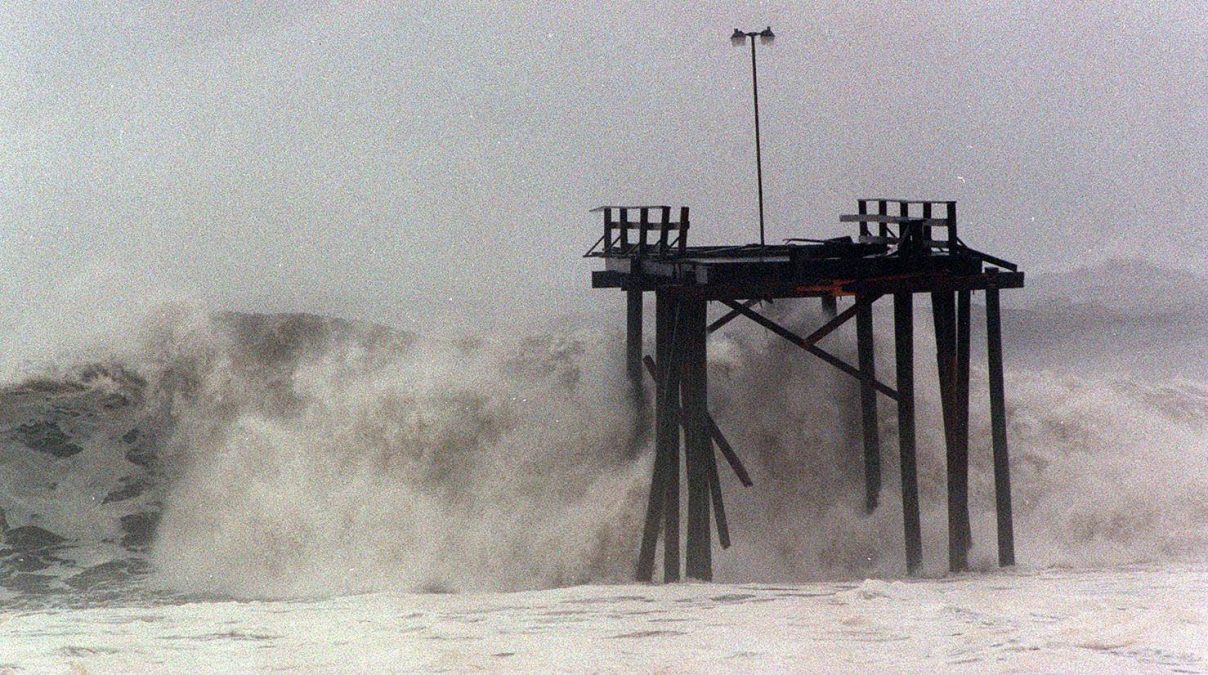
As the 2020 hurricane season reaches its peak, new storm threats are churning in the Atlantic.
This hurricane season was forecast to be an active one based on a combination of reduced wind shear and warmer ocean surface temperatures in both the Gulf of Mexico and the main hurricane generation region between the west coast of Africa and the Caribbean Sea brewing up more storms.
So far there have been 20 named storms. The average for an entire season, which runs June 1 to November 30, is 12, according to the National Oceanic and Atmospheric Administration (NOAA).
Researchers at the University of North Carolina at Chapel Hill monitor these storms using the ADCIRC Prediction System and are available to provide insight on storm surge and flooding, emergency management during natural disasters, water quality, beach erosion and other storm-related issues.
If you’d like to speak with an expert, call 919-445-8555 or email mediarelations@unc.edu.
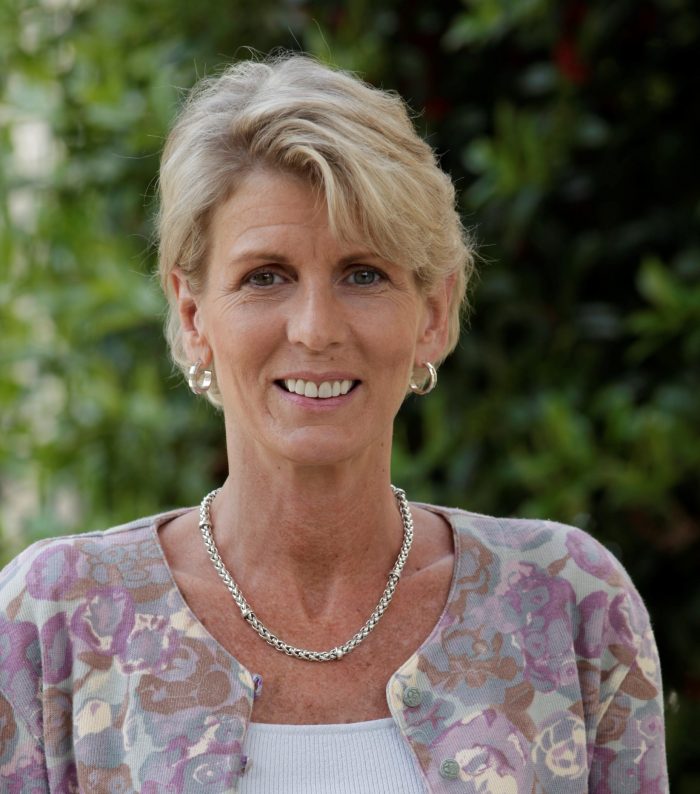 Norma Houston is a lecturer in public law and government at the UNC-Chapel Hill School of Government. Houston is an expert on the laws and authorities related to emergency management, including state of emergency declarations, and is often on the front lines with North Carolina public officials during hurricanes. She works closely with the North Carolina Division of Emergency Management year-round to help local governments prepare for natural disasters and she curates an emergency management website for North Carolina public officials. Houston is also an expert in local government law and procurement and, in the wake of Hurricanes Matthew and Florence, has been helping local governments navigate federal procurement regulations around Federal Emergency Management Agency reimbursements. She can discuss what local governments are authorized to do during disasters, how they should prepare for scenarios like evacuations and debris removal, and federal regulations like FEMA contract requirements.
Norma Houston is a lecturer in public law and government at the UNC-Chapel Hill School of Government. Houston is an expert on the laws and authorities related to emergency management, including state of emergency declarations, and is often on the front lines with North Carolina public officials during hurricanes. She works closely with the North Carolina Division of Emergency Management year-round to help local governments prepare for natural disasters and she curates an emergency management website for North Carolina public officials. Houston is also an expert in local government law and procurement and, in the wake of Hurricanes Matthew and Florence, has been helping local governments navigate federal procurement regulations around Federal Emergency Management Agency reimbursements. She can discuss what local governments are authorized to do during disasters, how they should prepare for scenarios like evacuations and debris removal, and federal regulations like FEMA contract requirements.
 Rick Luettich is the director of UNC-Chapel Hill Institute of Marine Sciences and the lead investigator of the Department of Homeland Security’s Coastal Resilience Center. He is a leading global expert on storm surge. He also is on the front lines when it comes to predicting a storm’s potential impact as co-developer of the ADCIRC Prediction System, a system of computer programs used to predict storm surge and flooding. These prediction models are updated every few hours. Agencies and organizations including Federal Emergency Management Agency, National Oceanic and Atmospheric Administration, U.S. Army Corps of Engineers, the U.S. Coast Guard and the emergency operations centers in several coastal states use Luettich’s model to assess risk, for design protections and to make decisions during storm events. He can discuss coastal risk, protection and forecasting storms.
Rick Luettich is the director of UNC-Chapel Hill Institute of Marine Sciences and the lead investigator of the Department of Homeland Security’s Coastal Resilience Center. He is a leading global expert on storm surge. He also is on the front lines when it comes to predicting a storm’s potential impact as co-developer of the ADCIRC Prediction System, a system of computer programs used to predict storm surge and flooding. These prediction models are updated every few hours. Agencies and organizations including Federal Emergency Management Agency, National Oceanic and Atmospheric Administration, U.S. Army Corps of Engineers, the U.S. Coast Guard and the emergency operations centers in several coastal states use Luettich’s model to assess risk, for design protections and to make decisions during storm events. He can discuss coastal risk, protection and forecasting storms.
Luettich’s research and the ADCIRC model has also been used to design protection systems around New Orleans following Hurricane Katrina and around New York and New Jersey following Hurricane Sandy. The ADCIRC Prediction System was extensively used by local eastern North Carolina communities to aid in planning efforts prior to hurricanes Florence and Dorian. Most recently the ADCIRC Prediction System provided extensive storm surge and flooding predictions for the major landfalling hurricanes during the 2020 hurricane season.
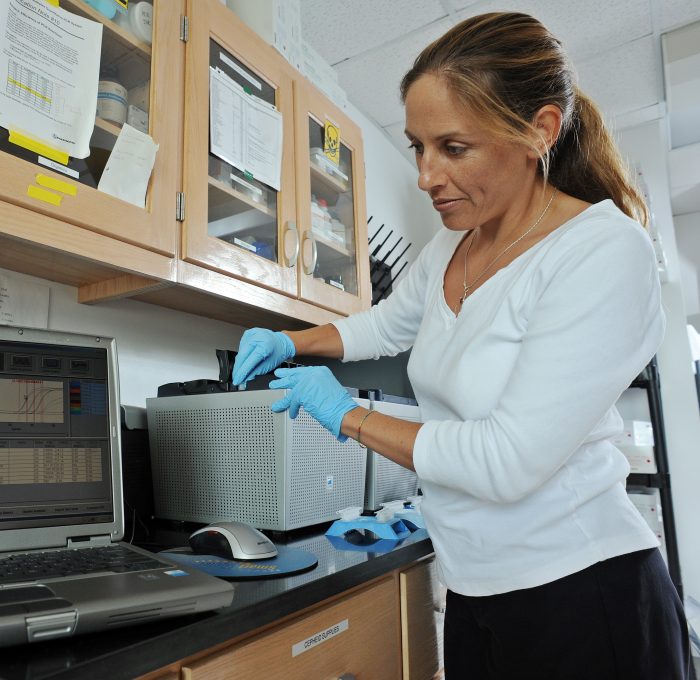 Rachel Noble is a distinguished professor at the UNC-Chapel Hill Institute of Marine Sciences. Her research focuses on public health issues surrounding water quality, including stormwater, drinking water and extreme conditions like those following a tropical storm or hurricane event. Her current work highlights the use of rapid tests to protect public health from waterborne diseases. She can discuss how to protect human health by better understanding pathogens and the risk they pose to the public, particularly after storm events.
Rachel Noble is a distinguished professor at the UNC-Chapel Hill Institute of Marine Sciences. Her research focuses on public health issues surrounding water quality, including stormwater, drinking water and extreme conditions like those following a tropical storm or hurricane event. Her current work highlights the use of rapid tests to protect public health from waterborne diseases. She can discuss how to protect human health by better understanding pathogens and the risk they pose to the public, particularly after storm events.
Noble’s research and rapid method tests have been used on both coasts and the Great Lakes to protect public health. She is currently working with the Environmental Protection Agency on the implementation of methods to rapidly test E. coli at beaches. She is actively working with municipal wastewater agencies in California, North Carolina, Virginia, and Maryland on improved approaches to protect the public from contamination events in a more timely manner.
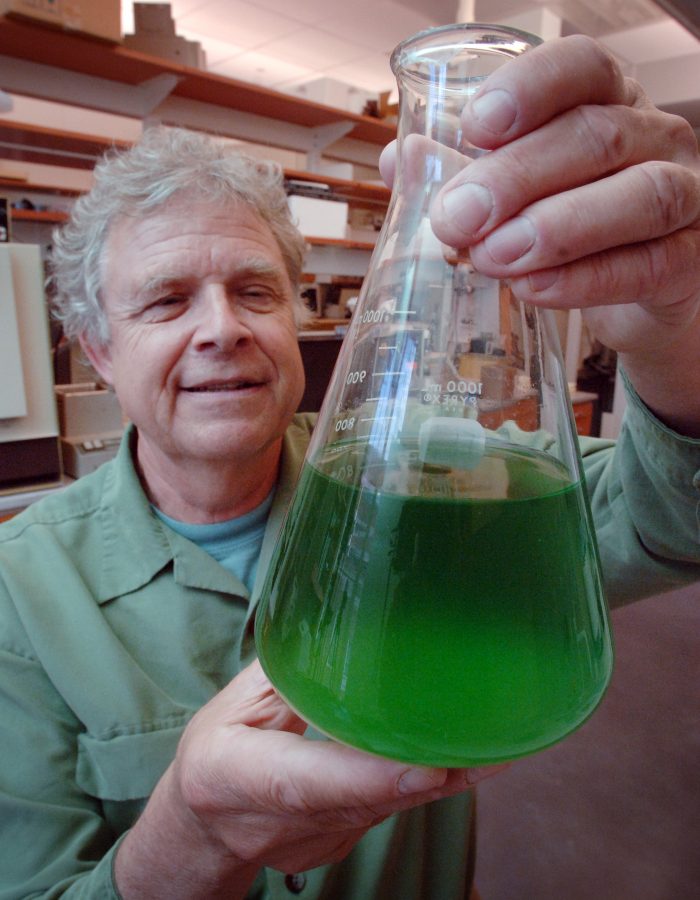 Hans Paerl is a distinguished professor of marine and environmental sciences at the UNC-Chapel Hill Institute of Marine Sciences. He is a water quality expert, focused on the harmful effects of toxic algae for both people and aquatic ecosystems. He can discuss the long-term impact of these blooms, including excessive nutrient inputs leading to algal blooms and their detrimental effects, such as low oxygen (hypoxia), fish kills and toxicity of blooms, including digestive, liver and neurological impacts on human health.
Hans Paerl is a distinguished professor of marine and environmental sciences at the UNC-Chapel Hill Institute of Marine Sciences. He is a water quality expert, focused on the harmful effects of toxic algae for both people and aquatic ecosystems. He can discuss the long-term impact of these blooms, including excessive nutrient inputs leading to algal blooms and their detrimental effects, such as low oxygen (hypoxia), fish kills and toxicity of blooms, including digestive, liver and neurological impacts on human health.
Paerl’s recent study demonstrates that over the past two decades, tropical cyclones around the globe are increasing in both frequency and intensity. This has led to greater impacts to coastal watersheds including more fish kills, larger algal blooms, and larger low oxygen “dead zones.”
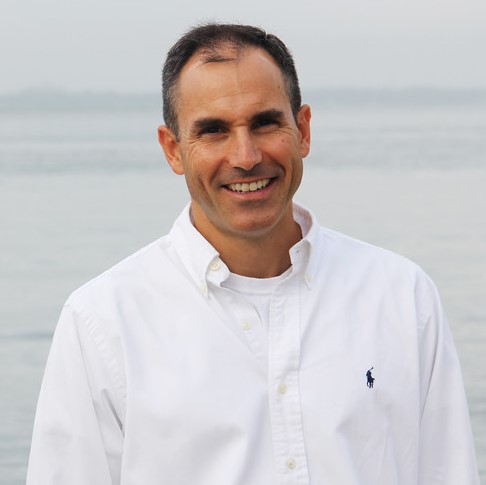 Tony Rodriguez is a professor at the UNC-Chapel Hill Institute of Marine Sciences. His research focuses on the geologic processes that shape coastlines, including understanding the forces that change our shores after a hurricane and how that change manifests in the face of a changing climate. In collaboration with Duke University his lab uses small drones to better understand the impacts of hurricanes on local barrier islands and to the beaches of Camp LeJeune.
Tony Rodriguez is a professor at the UNC-Chapel Hill Institute of Marine Sciences. His research focuses on the geologic processes that shape coastlines, including understanding the forces that change our shores after a hurricane and how that change manifests in the face of a changing climate. In collaboration with Duke University his lab uses small drones to better understand the impacts of hurricanes on local barrier islands and to the beaches of Camp LeJeune.
Rodriguez’s research shows that accelerated sea-level rise lowers the resistance of barrier islands to overwash and flooding during storms such as hurricanes.
P: 919-445-8555 | E: mediarelations@unc.edu
